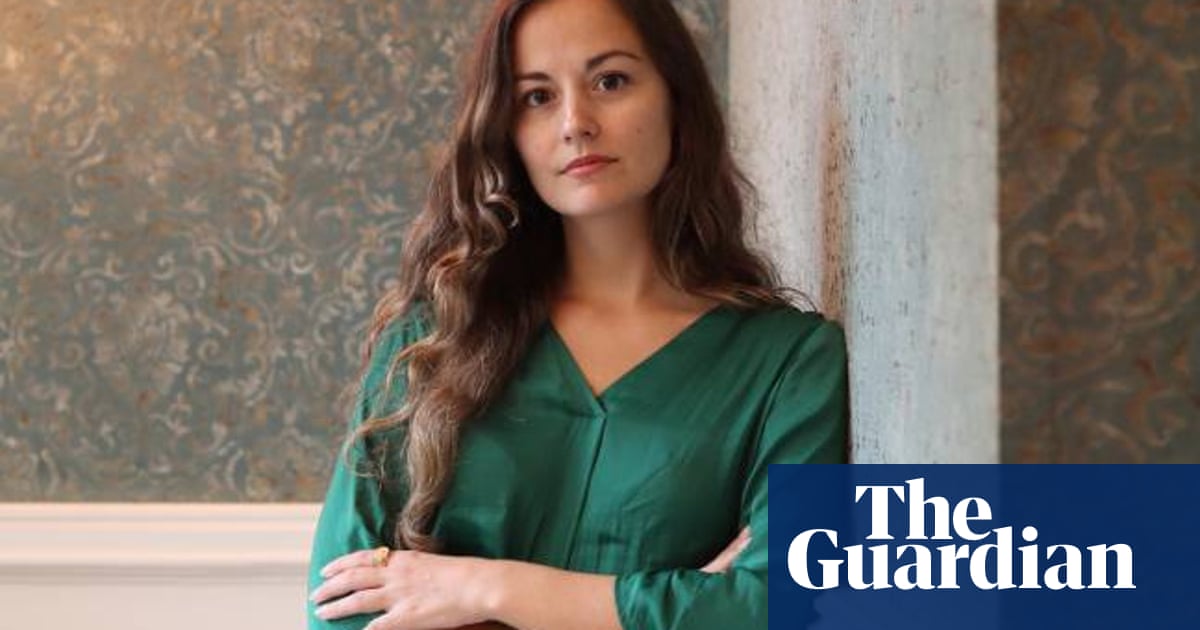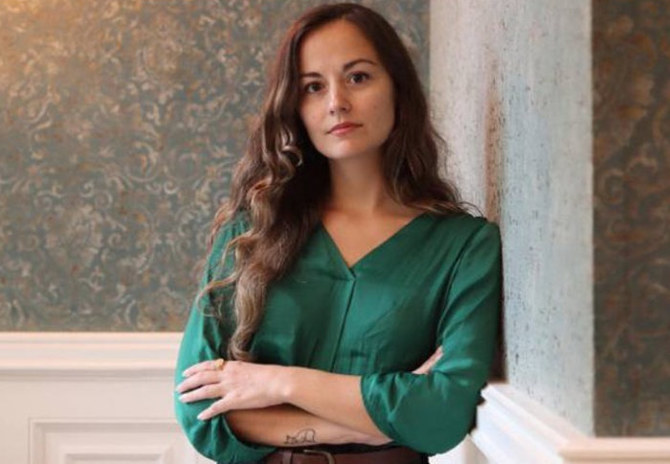
A prize-winning Bosnian and Serbian novelist has cut ties with her German publisher in protest against what she describes as its silence on the humanitarian crisis in Gaza, as a call for an all-out boycott of German cultural institutions over the government’s pro-Israel stance divides opinion.
Lana Bastašić, 37, who won the 2020 EU prize for literature for her debut novel, Catch the Rabbit, posted on Instagram on Monday that it had been her “moral and ethical duty to terminate my contracts” with the publishing house S Fischer, citing its failure “to be vocal about the ongoing genocide happening in Gaza”, as well as the “censorship” of pro-Palestinian voices in Germany.
Founded in 1886 by the Jewish publicist Samuel von Fischer, Frankfurt-S. Fischer Verlag was driven into exile by the Nazi regime in 1936. On its website, the publishing house states its intention to “stand up to new forms of antisemitic and racist thinking and action […] especially after Hamas’ massacre on 7 October 2023”.
A spokesperson for S Fischer confirmed that Bastašić had terminated her contract in December, adding: “We respect her decision and are in constructive talks with her agency.”
In an email to the Guardian, Bastašić said the contract she had terminated was for her next novel, which is still in the process of being written. “I walked away from enough money to last me a year,” she said.
Germany’s government has been one of Israel’s most vocal allies since the recent escalation of the conflict in the Middle East. On Friday, it said the accusation of genocide against Israel at international court of justice was completely unfounded and amounted to a “political instrumentalisation” of the UN genocide convention.
This stance has proved particularly divisive in Germany’s cultural sector. Bastašić’s announcement comes a week after the launch of a petition calling for a boycott of German cultural institutions over what it calls their “McCarthyist policies that suppress freedom of expression, specifically expressions of solidarity with Palestine”.
The anonymous organisers of the petition, entitled “Strike Germany”, claimed on Monday they had amassed more than 1,000 signatories, including those of the Nobel prize-winning French author Annie Ernaux and several recent winners of the British Turner art prize, including Tai Shani and Jesse Darling.
Whether all signatories have been verified, however, is doubtful. On Monday morning, the website’s list of signatories also included that of Knut Hamsun, the Norwegian Nobel literature prize winner who died in 1952.
It is also unclear if the petition’s supporters will boycott German cultural institutions, or if the petition merely calls for such a move in the future. Suhrkamp, Ernaux’s German publisher, confirmed in an email to the Guardian that the author had signed the petition but that the publications and dramatic stagings of her texts in Germany would not be affected by the call for a strike.
Theatres in Hamburg, Osnabrück and Weimar, which are due to show plays based on Ernaux’s writing in the coming weeks, all said they expected these performances to go ahead as scheduled.
One cause behind recent criticism of censorship in Germany is a new “anti-discrimination clause” that must be signed by applicants in order to get cultural funding from Berlin. Announced by the German capital’s culture senator, Joe Chialo, at the start of the year, the clause is ostensibly meant to ensure that “no racist, antisemitic, queerphobic or otherwise discriminatory expressions are supported with public funds”.
Many figures in the art world have criticised the clause for relying on the controversial International Holocaust Remembrance Alliance definition of antisemitism, saying it would have a stifling effect on legitimate criticism of Israel’s actions.
Critics of Berlin’s anti-discrimination clause include not only the organisers of the Strike Germany petition but also the president of the state-funded Goethe Institute cultural association. In an op-ed for Der Spiegel published on Sunday, Carola Lentz warned that such a move risked instrumentalising art for political ends.












